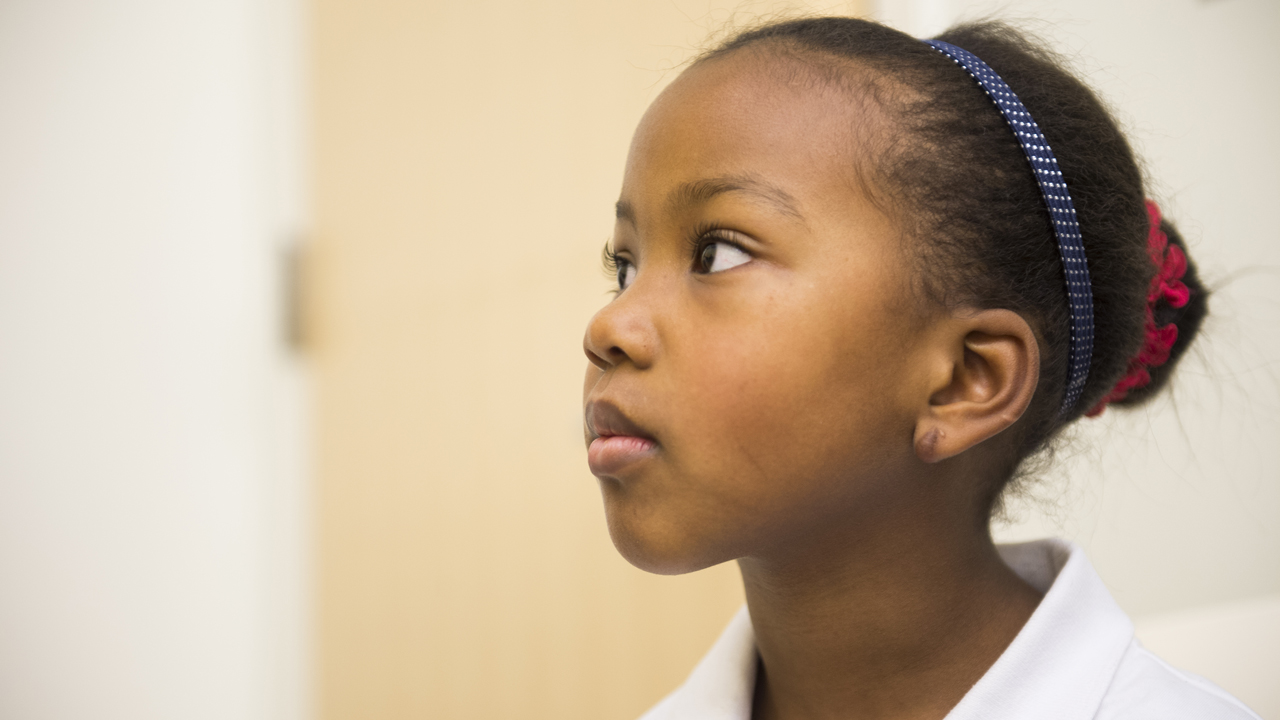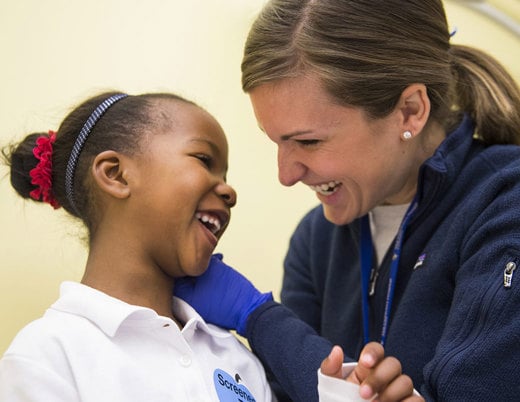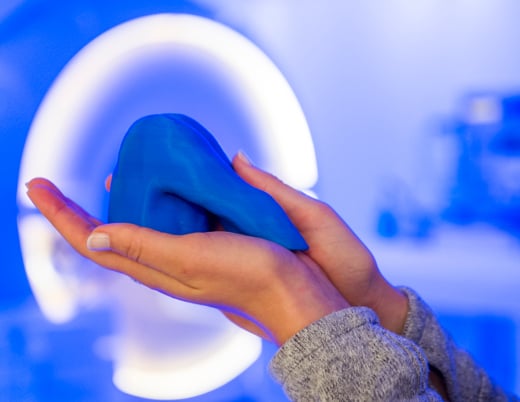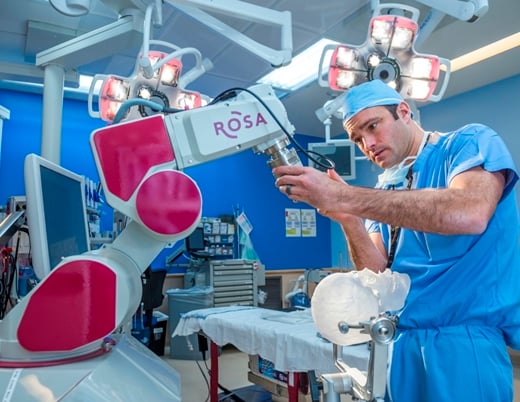Advancing Treatment for Pediatric Craniopharyngioma (ATPC) is North America's first multicenter consortium dedicated exclusively to the discovery and testing of novel therapies for children with adamantinomatous craniopharyngioma (ACP). The goal is to offer new therapies that will improve treatment and quality of life for children with ACP.
Craniopharyngioma is an uncommon, slow-growing brain tumor that can occur in children or adults. Though there are two types of craniopharyngioma; children with craniopharyngioma almost always have the adamantinomatous (ACP) subtype. These tumors usually have some areas that are solid and some areas that are cystic (made up of pockets of trapped fluid).
Pediatric ACP is well known for the severe neurological and endocrine damage it can cause. As a slow growing brain tumor, it is difficult to study using traditional laboratory techniques. As a result, understanding the drivers of craniopharyngioma growth lags well behind that of other pediatric brain tumors.
Collaborating to improve craniopharyngioma treatment
By leveraging the clinical experience of more than a dozen pediatric cancer centers and a prominent pediatric brain tumor laboratory, we are identifying the unique aspects of ACP biology that will help reveal new therapies with a strong potential to improve the quality of life experienced by the patients and families who are afflicted by this brain tumor.
ATPC includes 17 major pediatric cancer centers in the U.S. and Canada. In addition to Children's Hospital Colorado on Anschutz Medical Campus, other members include:
- Arnold Palmer Hospital for Children
- Children's Healthcare of Atlanta, Emory University
- Children's Hospital of Alabama, University of Alabama
- Children's Hospital of New York, Columbia University
- Children's Mercy Hospital, University of Missouri
- Children's National Hospital, George Washington University
- Johns Hopkins Children's Center, Baltimore, MD
- Johns Hopkins All Children's Hospital, St. Petersburg, FL
- Lucille Packard Children's Hospital, Stanford University
- Memorial Sloan-Kettering Cancer Center, Cornell University
- Miami Children's Hospital, University of Miami
- Monroe Carrell Jr. Children's Hospital, Vanderbilt University
- Montreal Children's Hospital, McGill University
- Nationwide Children's Hospital, Ohio State University
- Seattle Children's Hospital, University of Washington
- St. Louis Children's Hospital, Washington University
What is different about this consortium?
There are two areas in which our laboratory focus in ACP is unique:
Studies in gene expression
The first area is in studies of gene expression (i.e., transcription). For each specimen of tumor, we use advanced laboratory techniques to analyze the material that is made from the DNA, called messenger RNA (mRNA). This helps tell us what molecules the tumor cells are actually making.
When we compare this to mRNA from other tumors and to specimens of non-tumor brain tissue that are part of a large tissue bank, we can identify the unique characteristics of ACP. We can then relate these characteristics to potential medications that specifically target them.
In 2015, the consortium published the first description of the mRNA that ACP transcribes. We identified four potential pathways that could be targeted for therapy. We are now collaborating with a group in London that developed the first small animal model of ACP to learn whether these pathways may help us treat children with ACP.
Studies in inflammation
The second area in which we do unique work regarding ACP is regarding inflammation. Inflammation is the process through which the specialized cells and substances of the immune system protect the body from outside invaders or respond to injury. Some tumors evade the body’s immune system, while others stimulate activity.
In 2017, the consortium published a paper describing the unique pattern of inflammatory substances in both ACP cyst fluid and solid tumor tissue. This was the first work to describe the presence of immunosuppressive actors in ACP. In this paper, we again identified potential new therapies against ACP. We are currently focused on advancing this work to further refine the list of potential treatments and to test it.
As mentioned, ATPC is focused on controlling tumor growth in a manner that improves the quality of life of children with ACP. To do this, we follow each child after treatment in order to see how they are doing. We do this by asking children and caregivers to complete a short questionnaire online or in clinic during normally scheduled follow-up visits, and by communicating with the patient’s doctors. We hope to bring new therapies that are specifically directed at helping children with ACP live normal, active lives.
Why choose Children's Hospital Colorado for treatment?
At Children's Colorado, our internationally-recognized experts in ACP research also compose a highly experienced and dedicated multidisciplinary team that is focused on taking care of each child with ACP.
ACP can be very challenging to treat because it is a complex tumor that usually develops in a critical location, along the base of the brain between the hypothalamus and the pituitary gland. Our Center offers the pediatric neurosurgical expertise to remove as much tumor as possible, while minimizing the risk of additional injury at the time of surgery.
We are one of a very few institutions with a dedicated pediatric radiation oncologist. This expertise is critical in the treatment of ACP, as our patients need to have tumor growth controlled while minimizing the impact of radiation therapy on their developing brains.
Multidisciplinary support all in one place
Each patient at Children's Colorado receives a complete multidisciplinary evaluation at the time of diagnosis, with coordinated clinical care among all specialists.
After completion of initial therapy, clinic visits occur in a specialized multidisciplinary clinic setting that allows your child and family to remain in one space while the specialists come to you. This means you can see all of your child’s providers in one place on the same day.
Children with ACP may have hormone changes, visual problems and cognitive changes. These all need close follow-up.
Our patients can have an MRI and clinic visits with specialists in pediatric endocrinology, ophthalmology, neuro-oncology, neurosurgery, neuropsychology and radiation-oncology in one clinic setting. Patients and families are pleased to take only one day off from school or work and get everything done — even if it's a long day. Patients who have previously received care at multiple locations routinely express their appreciation for having coordinated care in one setting.
This multidisciplinary approach is important to patient care because the treatment of children with ACP, as with many pediatric brain tumors, can be complex. Patients, their families and medical caregivers often face difficult choices without clear answers. Our knowledge of all the available options, and newly evolving research, allows us to work together to make the best choice for each patient as we navigate the treatment pathway together.
What grants or funding have we been awarded to assist with this research?
While the ATPC is a relatively new consortium, we are very fortunate with research funding. We have received generous support from National Institutes of Health, The Brain Tumour Charity, The Morgan Adams Pediatric Brain Tumor Research Program, Hartford Foundation for Public Giving, Cancer League of Colorado and Children's Colorado's Research Institute.
Services offered
Children's Colorado and the ATPC provide advanced resources and pediatric-focused care. We use sophisticated imaging tests (such as MRI and CT), laboratory tests, eye examination equipment and more. We provide all these resources in an environment that is focused on the patient’s comfort with a knowledgeable and experienced team.
Contact us
For more information, please email ATPC@childrenscolorado.org.





 720-777-0123
720-777-0123










